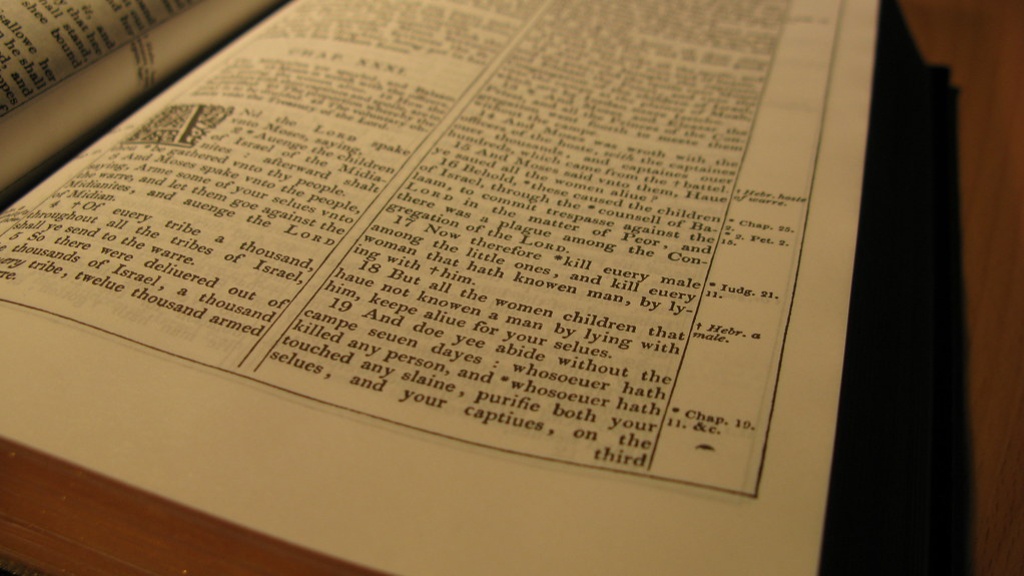The Chaldeans are one of the most enigmatic people of the Bible. They were a mysterious and powerful tribe that inhabited the same region as the Assyrians and Babylonians in ancient Mesopotamia. The Chaldeans are mentioned throughout the Bible, from the time of Abraham to the end of the Exile period. As such, they have long been the subject of scholarly discussion and speculation.
The exact origins of the Chaldeans are unclear. Some scholars suggest they may have been a branch of the Aramean people, while others propose they were of South Arabian origin. It is likely that they were a mixture of both, and their centuries of inhabiting the region meant they were heavily impacted by both cultures.
What is known is that they were a powerful force in the region. During the 7th and 6th centuries BC, they formed a formidable coalition with the Assyrians and Babylonians and fought against the Assyrians. The Chaldeans are mentioned many times in the Bible as a people that opposed the Assyrian Empire, and their victory over the Assyrians in 605 BC has been seen as a major turning point in Biblical history.
The Chaldeans were known for their wisdom and knowledge, especially in the field of astrology. This is evident from the writings of the prophets and later references to the ‘magii’ or wise men, who were likely Chaldean astrologers. The Chaldean alphabetical syllabary is also of great interest to scholars, as it was the origin of the script used in writing cuneiform texts from Mesopotamia.
One of the most significant references to the Chaldeans in the Bible is the Babylonian captivity of the Jews in the 6th century BC. After the defeat of the Assyrians, the Chaldeans forced the Jews into exile in Babylon, where they remained until 539 BC. This is considered to be one of the pivotal events in the history of the Jewish people, as it is during this period that the Babylonian version of the Torah is written and the foundations of Judaism as we know it is created.
The Chaldeans were also significant in the New Testament, where they appear as a powerful political force in the time of Jesus. In the Gospel of Matthew, it is mentioned that the wise men who visited Jesus were from the east and likely Chaldean. This is further confirmed by the establishment of a community of Christian Chaldeans in northern Mesopotamia during the 4th century.
The Chaldeans have long been associated with mystery and power. Their role in Biblical history is significant and it is clear that they had a major impact on the development of the faith. It is therefore not surprising that the Chaldeans captured the imagination of scholars and believers alike.
The Legacy of the Chaldeans
The legacy of the Chaldeans has been long lasting and far reaching. Their formidable coalition and defeat of the Assyrians was a major turning point in history and their influence is still felt today.
The Chaldean language, also known as Aramaic, is still spoken by members of the Chaldean Catholic Church in Iraq, Syria and Turkey and has been adopted by the Modern Hebrew language. The Chaldean alphabetical syllabary has also been significant, with many scholars suggesting that it forms the basis of the modern Hebrew script.
Their belief in astrology and wisdom has also been influential. It is likely that the Chaldeans of ancient times passed down their knowledge to the wise men of the New Testament, who in turn passed it down to Medieval scholars. This legacy is still carried on to this day in the form of astrologers, astronomers and other scholars of the occult.
Finally, their contribution to the development of Judaism also cannot be overlooked. It is during the Babylonian exile that the Hebrew Bible is written and Judaism is transformed into the faith we know today. The Chaldean influence on Christianity has also been significant, with the Chaldean Catholic Church becoming one of the largest Eastern religious communities in the Middle East.
Modern Day Chaldeans
Despite the long exile, a large population of Chaldeans still remain. The Chaldean community in Iraq is estimated to be around 600,000 people, with a similar number also living in Syria and throughout the Middle East. The Chaldean Catholic Church is a major part of this community and is considered to be one of the oldest Christian denominations in the world.
The Chaldean presence has also been felt in the United States, with large numbers of Chaldeans migrating from Iraq and other Middle Eastern countries in the last century. There are estimated to be around 250,000 Chaldeans in the US, with large communities in California, Michigan and Illinois.
The Chaldeans have endured the destruction of their homeland and maintained a strong community throughout history. They have adapted to any changes in their environment, whether it be a different language, different culture or a different faith. Despite facing many challenges, the Chaldean people remain a vibrant and influential force in the Middle East.
The Significance of the Chaldeans
The Chaldeans are an integral part of Biblical history and have played a significant role in the development of faith and culture. Their defeat of the Assyrians, their belief in astrology and their contribution to the formation of modern Judaism and Christianity have long been appreciated by scholars and believers alike.
The Chaldeans have also provided us with valuable insight into the past. Their language and writing has allowed us to understand more about the ancient Near East, while their endurance and resilience are an integral part of their legacy as a people.
The Chaldeans have always been a powerful force in the region and will continue to be so for many years to come. Their influence and importance can never be understated and their influence can still be felt today.
The Relevance of the Chaldeans in the Modern World
The Chaldeans remain relevant in the modern world, both in terms of their faith as well as their place in the political and cultural landscape. While the political situation in Iraq and Syria is still volatile, the Chaldeans continue to promote peace and engage in dialogue with their neighbours.
The Chaldeans have also been an important source of education and knowledge in the region. The Chaldean Catholic Church runs many schools, hospitals, and relief programs in Iraq and Syria to help those in need.
The Chaldeans have also played an important role in supporting and preserving ancient sites in the region. They are one of the main custodians of the ancient city of Nineveh, as well as other important archaeological sites in the region.
The Chaldeans also maintain strong ties to Judaism and Christianity, both of which remain integral parts of their identity. The Babylonian captivity was a significant event in the history of the Jewish people, and the Chaldeans continue to be a major force in the region. The Chaldean Catholic Church also remains an integral part of Christianity in the Middle East.
The Chaldean Identity
The Chaldeans have long held onto their identity despite the challenges they have faced. They have persevered and maintained a strong sense of who they are and what they believe in. The Chaldean language, culture and faith have managed to survive centuries of turmoil and displacement.
The Chaldeans have also been instrumental in promoting tolerance and understanding among their neighbours. They have engaged in inter-religious dialogue and acted as mediators between faiths. Their commitment to creating a better future for those around them has been admirable and is an example for others to follow.
The Chaldeans remain a proud people with a strong sense of identity and heritage. Their spirit of resilience and commitment to dialogue will continue to be a model for others and remind us of the power of community and faith.
Conclusion
The Chaldeans have played an integral role in Biblical history and the development of faith and culture. Their legacy is still felt to this day and they remain a vibrant and influential force in the Middle East. Their language and culture have endured centuries of hardship and they have been dedicated to creating a better future for their communities. The Chaldeans are an example of resilience, faith and understanding and continue to be a source of inspiration and hope.





